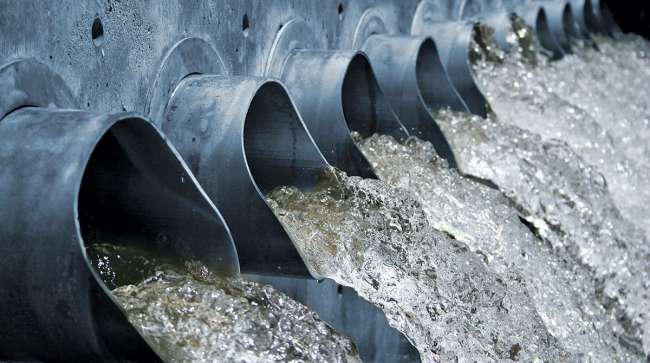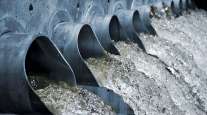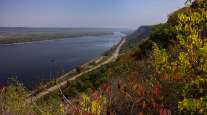Senior Reporter
House Passes Water Infrastructure Bill

[Stay on top of transportation news: Get TTNews in your inbox.]
A bill that would authorize dozens of water infrastructure projects and studies was passed by the U.S. House of Representatives on June 8.
By a vote of 384 to 37, the chamber approved the Water Resources Development Act of 2022, sponsored by Rep. Peter DeFazio (D-Ore.), which would seek to pave the way for national projects on dredging, commercial navigation and flood control. Many of the bill’s provisions fall under the purview of the Army Corps of Engineers.
“The Water Resources Development Act of 2022 — the largest and most ambitious WRDA bill to date — demonstrates that when Congress works together, it can pass legislation on a bipartisan basis that benefits communities across the country. WRDA 2022 helps provide much-needed investment in ports, harbors and inland waterways — easing supply chain problems — as well as flood mitigation infrastructure, and ecosystem restoration in both urban and rural communities alike,” said DeFazio, chairman of the Transportation and Infrastructure Committee. “The bill also directs the corps to carry out these projects in an economically and environmentally responsible manner, with an added emphasis on coordinating with state, local and tribal partners to execute projects equitably.”
Tonight, #WRDA2022 passed in the House, showing Congress’ commitment to our nation’s water infrastructure. It will now go to the Senate before moving on to be signed into law by the President. https://t.co/joHzxYgHAT pic.twitter.com/gOxBa6cHPj — Committee on Transportation and Infrastructure (@TransportDems) June 9, 2022
“Through biennial enactment, our committee has addressed local, regional and national needs through authorization of new U.S Army Corps of Engineers projects, studies and policies that benefit every corner of the nation,” added Water Resources and Environment Subcommittee Chairwoman Grace Napolitano (D-Calif.).
During its consideration in the House, the bill had gained bipartisan support. “Effective ports, inland waterways and flood protection infrastructure all help to strengthen and keep our economy moving, and with the current supply chain crisis, it’s more critical than ever to support water infrastructure and protect our communities,” Transportation and Infrastructure Committee ranking member Sam Graves (R-Mo) said.
“Flood protection in particular is something my district in Missouri relies on, and when the Missouri and Mississippi Rivers are mismanaged, it not only damages navigation channels that are essential to our economy, it also threatens the people and property along the rivers. It’s critical to make sure the corps does not lose focus of its navigation and flood control responsibilities, and this bill does just that,” Graves added.
“This WRDA bill brings focus and priority to important projects in North Carolina and throughout the country that will help to better protect families from flood risk and includes initiatives to improve the strength and durability of our ports and inland waterways,” said Water Resources and Environment Subcommittee ranking member David Rouzer (R-N.C.).
Want more news? Listen to today's daily briefing above or go here for more info
Specifically, the House bill would approve dozens of projects on shoreline protection and flooding, as well as feasibility studies on reservoirs, commercial corridors and alternative sources of energy.
House transportation leaders called on their Senate counterparts to advance their version of WRDA.
A Senate panel recently approved its water infrastructure policy bill. That measure, similar to the House bill, would approve dozens of new Army Corps of Engineers construction projects and feasibility studies. “The importance of investing in and revitalizing our water infrastructure cannot be understated,” Senate Environment and Public Works Committee Chairman Tom Carper (D-Del.) said last month. “From the waterways that deliver goods to the Port of Wilmington to the beaches protecting our coastal communities, our water resources are core to our way of life.”




